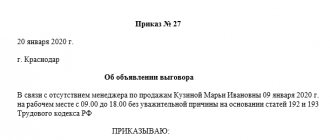Illustration from the State Duma website
In Moscow, an on-site audit of a company in almost 100% of cases ends in the initiation of a criminal case for a tax crime against the director. Why is this happening?
Starting around 2021 in Moscow, all materials based on the results of on-site tax audits are sent to the Main Investigation Department of the Investigative Committee for Moscow. The State Tax Administration analyzes the results of the on-site tax audit. After this, they give specific instructions on initiating a criminal case, carrying out the necessary investigative actions, the timing of their implementation, and send all materials to the investigative committees for the districts of Moscow.
Of course, district investigators report to their superiors from the Main Investigation Department and initiate criminal cases. Thus, local investigators are deprived of the procedural opportunity to refuse to initiate a criminal case.
Note that from October 2014 to 2021 the situation was different: investigators much more often decided not to initiate criminal proceedings under tax articles.
How exactly are tax crimes committed?
Article 199 of the Criminal Code specifies exactly how companies evade paying taxes:
- They do not provide tax returns, calculations or other documents that they must provide in accordance with the Tax Code of the Russian Federation.
- Include knowingly false information in a tax return or calculation.
What are other documents? These are extracts from the sales book, from the book of income, expenses and business transactions, calculations of advance payments, annual reports on the activities of a foreign organization, documents confirming the right to tax benefits.
What is knowingly false information? For example, if a company performs any work on its own, but indicates in the primary documents that this work was performed by a counterparty.
This means that the company can deduct VAT and take expenses into account when calculating corporate income tax. This is deliberately false information.
Subsidiary liability in bankruptcy
Subject: controlling person (no matter the founder, director or cleaner). The one who really runs the organization.
Liability: subsidiary (additional), for the debts of the organization in the event of insufficiency of its property.
What is provided: Ch. III.2 Federal Law “On Insolvency (Bankruptcy)”. Also see: Resolution of the Plenum of the Supreme Court of the Russian Federation dated December 21, 2021 No. 53 “On some issues related to holding persons controlling the debtor liable in bankruptcy.” Letter of the Federal Tax Service of the Russian Federation dated June 29, 2021 No. SA-4-18/ [email protected] “On the direction of the review of judicial acts”
First of all, what does subsidiary mean? This means that the amount of liability is equal to the total amount of all creditors' claims that remain unpaid due to the insufficiency of the debtor's property.
The law imposes subsidiary liability on the persons controlling the debtor (CPL). These are individuals or legal entities who, no more than 3 years before the company showed signs of bankruptcy, as well as after their occurrence and before the court accepted the bankruptcy petition, controlled (had the opportunity and right) the decisions made in the company, including on concluded transactions on her behalf, determining their conditions.
In this case, guilt is assumed if one of the following circumstances is proven:
- Significant damage has been caused to the property rights of creditors as a result of this person or in his favor, or his approval of one or more transactions, including suspicious transactions. A transaction is considered suspicious if it was completed 1 year before or after the start of bankruptcy, for which the price or terms of the transaction differ from the market ones or in payment of the price, the counterparty presented unequal property (Article 61.2 of the Federal Law of October 26, 2002 No. 127-FZ “On Insolvency (Bankruptcy)”). or transactions with preference A transaction with preference is a transaction that is made in the interests of an individual creditor (Article 61.3 of the Federal Law of October 26, 2002 No. 127-FZ “On Insolvency (Bankruptcy)”). .
- Accounting and (or) reporting documents are missing or distorted, as a result of which it is significantly difficult to carry out the procedures used in a bankruptcy case, including the formation and sale of the bankruptcy estate.
Important! When transferring cases to the arbitration manager, make sure that the primary accounting documents are filed in thematic folders and an inventory of each (!) document is drawn up. It wouldn’t hurt to take a photo of each (!) document. Before transferring cases, do a documentary audit. And not for 50 thousand rubles, when the auditor draws up a conclusion according to a pre-written template, namely a documentary one. Request what you need from your counterparties, no matter what the cost.
- More than half of the claims of third-priority creditors are due to the bringing of the debtor or its officials to criminal, administrative or tax liability. The most common case of the above, of course, is tax arrears. Statistically, the Federal Tax Service is the initiator of bankruptcy proceedings in every tenth case.
- Documents, the storage of which was mandatory for legal entities, are missing or distorted. This applies to company charters, minutes of general meetings, register of participants, documents, lists of affiliated persons, auditors’ reports, etc.
- As of the date of initiation of the bankruptcy case, the information required to be entered in accordance with the laws was not entered, or inaccurate information about the legal entity was entered into the Unified State Register of Legal Entities or the federal resource.
So far, the most common reasons for bringing the founders and managers of the debtor to subsidiary liability remain:
- Concluding transactions with fly-by-night companies, which led to the company's debt to the budget Resolution of the Arbitration Court of the Ural District dated March 9, 2021 in case No. A50-5577/2018, Resolution of the Arbitration Court of the Volga District dated January 21, 2021 in case No. A12- 28822/2018.
- Withdrawal of assets - alienation of property to other controlled persons without corresponding consideration Resolution of the Arbitration Court of the North Caucasus District dated May 13, 2021 in case No. A32-29595/2020, Resolution of the Arbitration Court of the Moscow District dated May 5, 2021 in case No. A40-184319 /2017.
- Failure by the head of the debtor to fulfill the obligation to file a bankruptcy petition for the organization he heads, if signs of insolvency were known to him (or should have been known) (Resolution of the Arbitration Court of the Moscow District dated April 7, 2021 in case No. A40-198752/2019, Resolution of the Arbitration Court Court of the Volga District dated May 4, 2021 in case No. A49-2408/2018).
- Failure to transfer company documents to the bankruptcy trustee (Resolution of the Arbitration Court of the Volga-Vyatka District dated February 2, 2021 in case No. A29-3345/2018, Resolution of the Arbitration Court of the West Siberian District dated March 23, 2021 in case No. A70-6995/2019 ).
Another interesting aspect is the use of denominations as a shield from liability. Judicial practice demonstrates that making a decision to replace the actual managers and founders of a company with nominees from among friends, employees and relatives not only does not prevent the owners of the business and real managers from being held vicariously liable, but is also indirect evidence of guilt.
The decision of the owners to “abandon” the debtor company by sending it to join a nominal structure in a remote region of the Russian Federation also does not help to evade responsibility, since in this case a simplified procedure is provided for declaring an absent debtor bankrupt. And now creditors are using this expensive procedure more and more often if there is an understanding that the former manager or owner has personal property that can be taken away.
An important nuance: you can apply for subsidiary liability during any bankruptcy procedure! Without waiting for the completion of bankruptcy proceedings. At least the next day after the introduction of observationSee. clause 1 art. 61.14 Federal Law of October 26, 2002 N 127-FZ “On Insolvency (Bankruptcy)”. Learn more about subsidiary liability based on a “manual” analysis of 375 arbitration cases from 2017-2019. look in our Guide®
Therefore, we move on to personal bankruptcy...
How does the tax office detect tax evasion?
During desk and field tax audits. We will not go into these details now. Let's pay attention to the timing. If arrears are identified, inspectors make demands for payment of taxes:
- two months are given to the business to pay upon request from the inspectorate;
- 10 days to transfer information to the investigative committee if the company has not paid the arrears;
- a month to conduct a pre-investigation check and decide whether to initiate a criminal case;
- two months to investigate the criminal case. However, in practice, these deadlines are not observed and the investigation of the case can take six months or a year.
In practice, approximately 2.5–3 years pass from the start of an on-site tax audit to the verdict.
For what amount can directors be held criminally liable under a tax article?
Let’s imagine that the company transferred 8 million rubles to a shell company. with VAT for certain services. At the same time, the company:
- counted these 8 million as expenses when calculating income tax;
- applied a deduction from input VAT.
What additional amount will the tax office charge based on the results of a tax audit if it is discovered that the counterparty is a shell company?
- VAT for RUB 1,220,338. (8,000,000/118 * 18). After all, the operation in connection with which the company applied a VAT deduction did not actually take place.
- Income tax - 1,355,932 ((8,000,000 - 1,220,338) * 20%).
- Fine: 1,030,508 - ((1,220,338 1,355,932) * 40%). We add up the amount of VAT and income tax paid and subtract 40% from it.
A fine of 40% of unpaid taxes is imposed if the non-payment was intentional - this is a prerequisite for initiating a criminal case. If a company did not pay taxes because the accountant made a mistake or did not know that the company should pay them, then there is no crime.
Unreasonable payment of bonuses to oneself.
Bonuses accrued and paid by a manager to himself may also be the subject of litigation.
A legal entity - a member of the company - recovered losses from the former general director in the amount of 9,322,902.61 rubles, paid as a bonus in the period from 01.11.2011 to 31.08.2014 on the basis of the director’s orders on his own bonuses as part of wages.
The courts found that the defendant, who single-handedly decided to pay himself a bonus, violated the procedure for considering these issues and illegally disposed of the company’s funds, thereby causing him losses.
Judicial act: Resolution 9 of the AAS dated November 16, 2015 in case No. A40-217713/14.
Intent for non-payment is the most important condition for initiating a criminal case against the director
All tax crimes are committed with direct intent. This is when the company's top managers:
- realized that they were not paying taxes, although they were required by law to do so;
- understood that they were breaking the law;
- carried out actions aimed at non-payment of taxes.
What are actions aimed at non-payment of taxes? Creation of one-day companies and subsequent work with them, artificial fragmentation of a business without a business purpose, failure to register some employees as employees so as not to pay insurance premiums for them, and so on.
The Investigative Committee and the Tax Service are faced with the task of proving that taxes were not paid intentionally. In this case, the tax office will be able to impose a fine of 40%, and the Investigative Committee will have the opportunity to initiate a criminal case. How is intent proven in practice? Using the procedures described in the Code of Criminal Procedure and the Tax Code, such as:
- taking testimony;
- search of the office;
- notch;
- requesting documents from the company itself and its counterparties;
- requests to the bank;
- conducting financial and accounting examinations.
A classic example: the tax office or investigators seized the company’s computer and found documentation there on behalf of a disputed counterparty. The properties of the file indicate that it was compiled by employees of the company being audited, which means that the counterparty is fictitious and taxes were not paid intentionally. After all, fictitious document flow is created only intentionally.
Back in 2021, the Tax Service and the Investigative Committee issued a joint letter dedicated to proving intent to commit a tax crime.
Status and functions of the director
The liability of the LLC director for the company’s debts is determined by his status. He is an employee or business owner who performs the functions of a manager:
- carries out general management of the company;
- coordinates the work of structural divisions;
- represents interests in transactions;
- monitors compliance with the law;
- is responsible for the correct maintenance of personnel, tax and accounting records;
- develops and implements overall strategy;
- complies with a balanced policy of attracting financing and monitors the fulfillment of loan obligations;
- ensures timely payment of wages.
These and a number of other functions indicate that the director is the person controlling the debtor and has direct influence on the development of the LLC. Therefore, he may be a subsidiary defendant for the company's obligations. The director's subsidiary liability for debts arises if it is proven that he performed his functions in bad faith and his actions or inactions brought the company to insolvency.
Is the director always liable if the company fails to pay taxes?
No not always.
The director has his own responsibilities, and the chief accountant has his own. If the director is not involved in accounting and, due to his official duties, did not choose contractors who turned out to be dubious, then it is very difficult to accuse him of tax evasion.
The courts take this point into account and examine whose responsibilities include the preparation and submission of declarations, as well as the selection of counterparties.
In our practice, there are cases when the tax office came with an on-site audit to a company and assessed an additional amount of more than 50 million rubles. A criminal case was opened against the director under Part 2 of Article 199 of the Criminal Code of the Russian Federation. The reason is the company’s connection with shell companies, which is why, according to investigators and the tax office, the taxpayer did not pay additional taxes.
However, we managed to prove that the director was not guilty and got the criminal case dismissed. Previously, he had already contacted us for comprehensive director protection services, thanks to which the company had:
- Regulations on contractual work.
- Due diligence clause.
- Regulations on the selection of counterparties and other documents.
In our case, the director did not select counterparties. He had contact only with counterparties-customers, and not with suppliers. Suppliers were searched and verified by other company employees. Therefore, the director could not bear any responsibility for the fact that some contractors turned out to be dubious.
Violation of discipline in spending funds.
A very common mistake made by managers. The issuance of funds to the defendant (former director of the company) from the cash desk is confirmed by primary accounting documents. When using cash in the interests of society (a third party), the manager must submit reporting documents on such expenditure.
The director was unable to account for the funds received and used. These amounts were recognized as losses of the company and recovered from the former director.
Judicial act: Resolution of the Volga District Court dated December 15, 2015 in case No. A65-28368/2014.
Similar conclusions are Resolution 13 of the AAS dated December 21, 2015 in case No. A56-40741/20.
What to do if a criminal tax case has already been initiated against the director?
If a criminal case has already been initiated, then it is necessary to involve experienced lawyers specializing in taxes to protect your interests. They are the ones who must analyze the situation, assess the risks and work out further tactics and line of defense.
To do this, witnesses may be questioned, documents may be presented, including those confirming the reality of the transaction, due diligence and commercial diligence may be exercised, a financial analysis of the results of controversial transactions may be carried out, and procedural grounds may be used to deem a number of evidence inadmissible. As practice shows, these actions can only be carried out by a lawyer practicing in this area.
conclusions
Almost any on-site tax audit leads to the initiation of a criminal case against the director of the company.
The Criminal Code contains several elements of tax crimes. In case of VAT refund from the budget, the case may be initiated under Art. 159 of the Criminal Code of the Russian Federation - “Fraud”.
Tax crimes fall under the jurisdiction of the Investigative Committee. This authority may receive information about a tax crime from various sources, but usually from the tax office, which conducted a tax audit and identified violations. Information may also come from the police or citizens who have filed a statement about tax violations by the company.
If a criminal case has already been initiated or a pre-investigation investigation is underway, then it is better to hire an experienced lawyer who will help you choose defense tactics and knows the nuances of procedural law.






